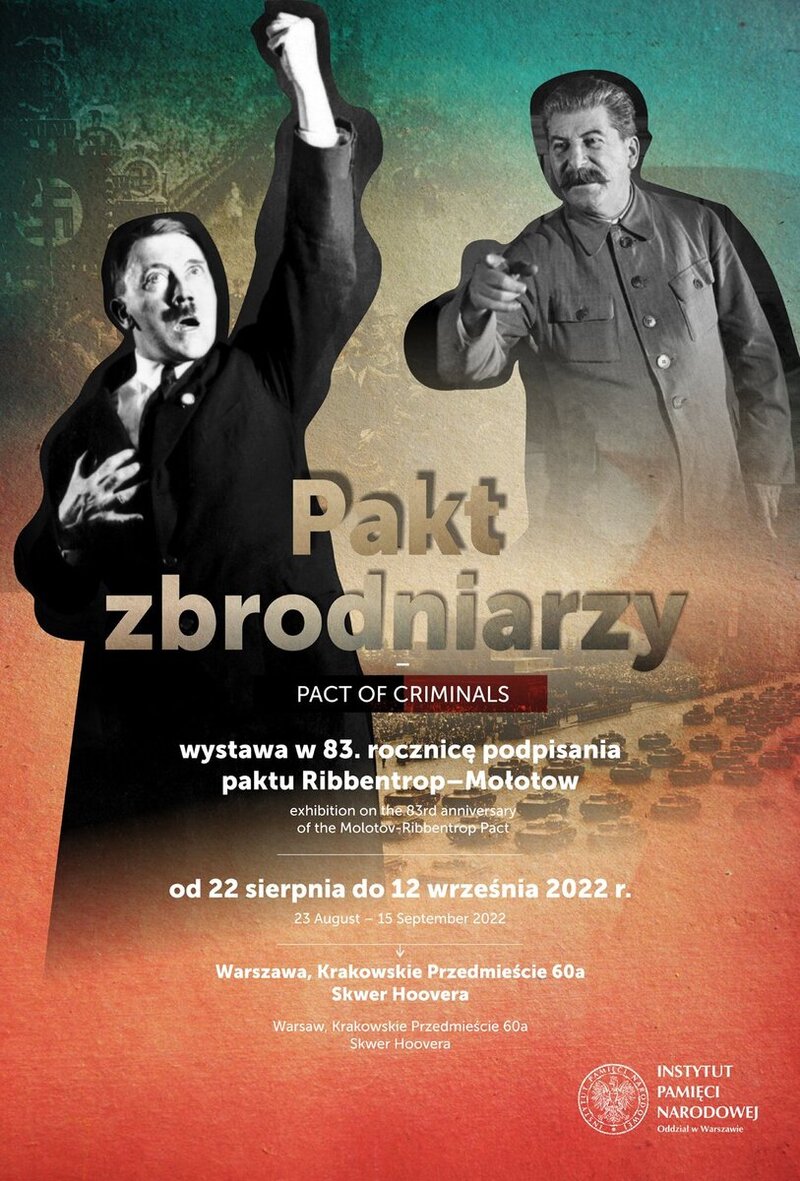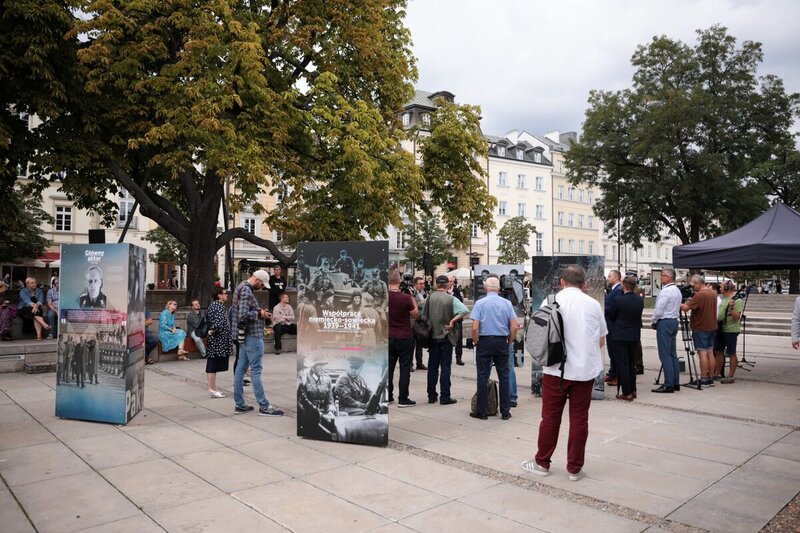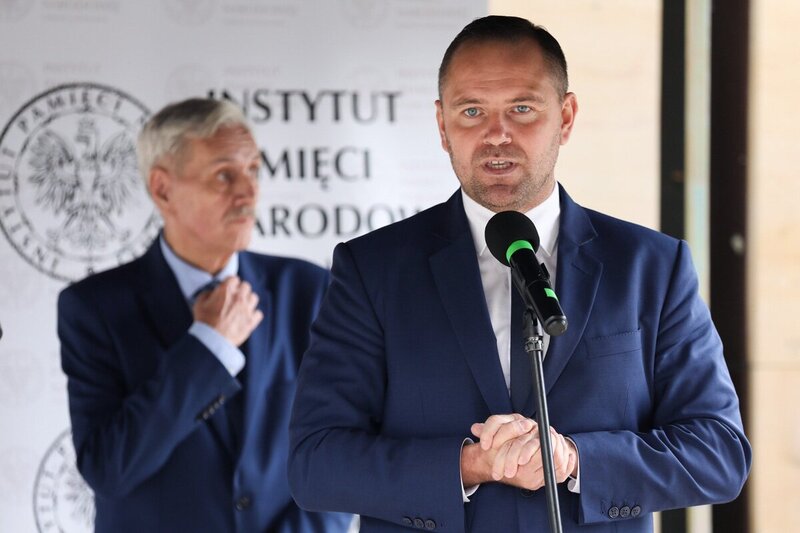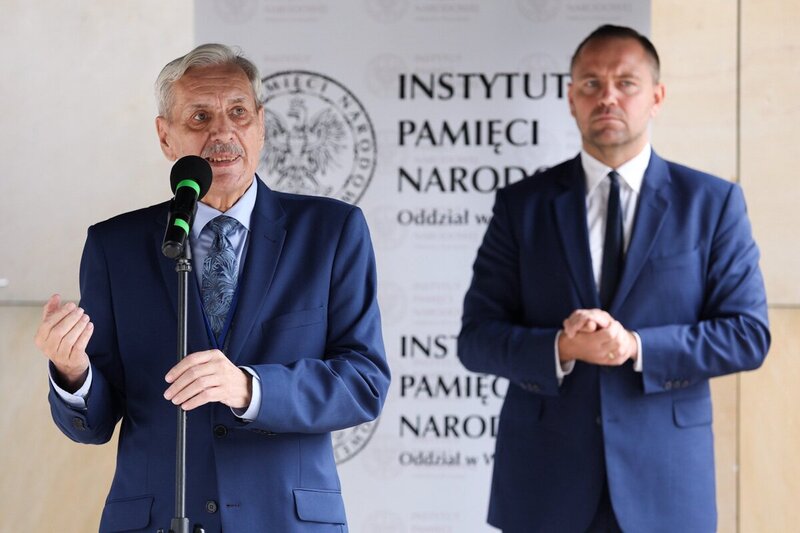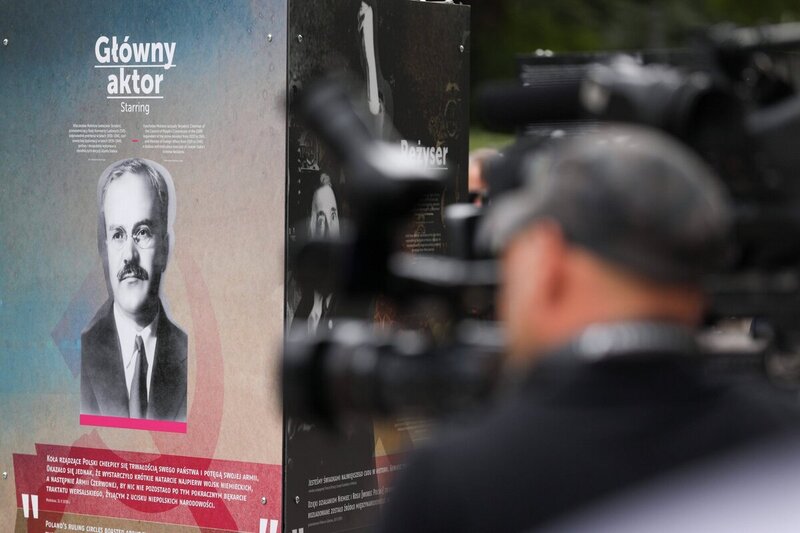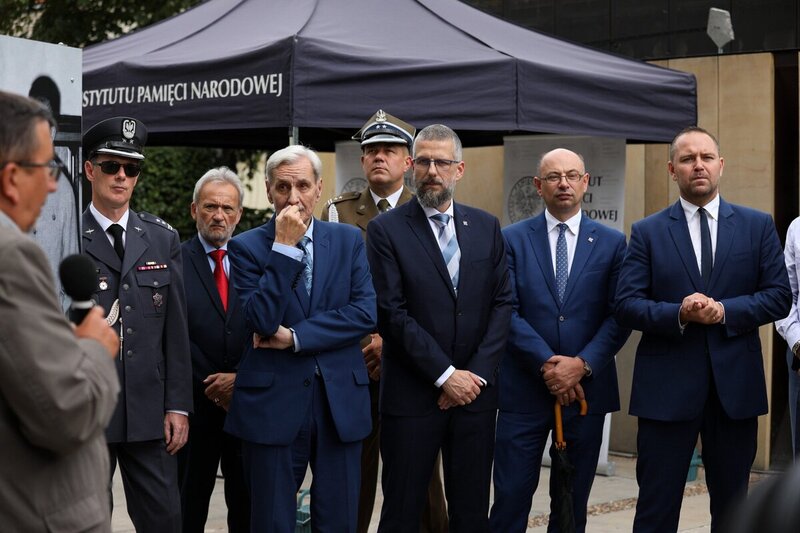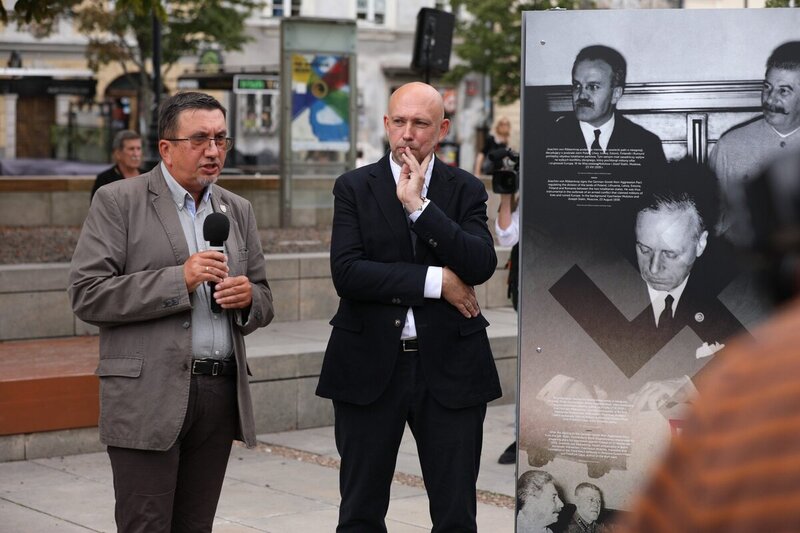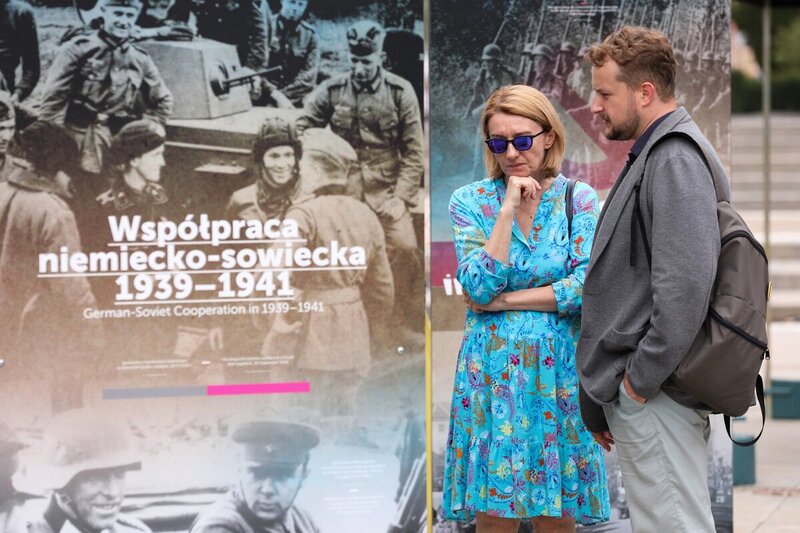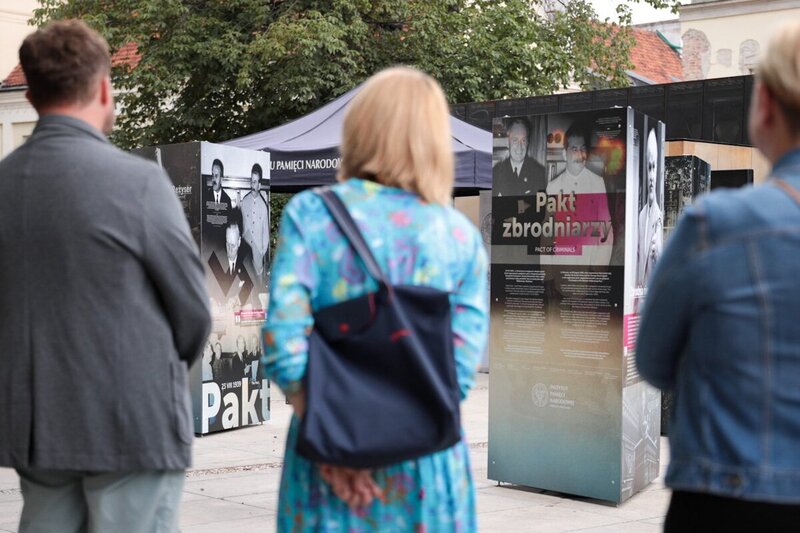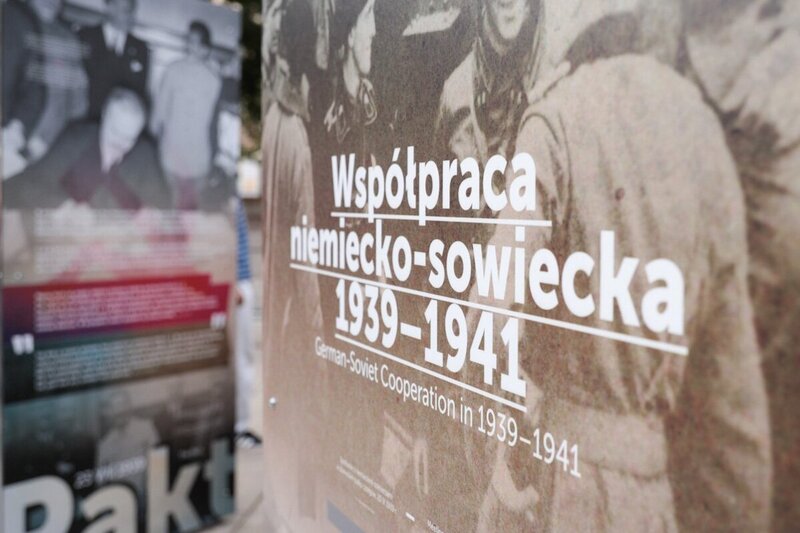In Hoover Square in Warsaw, President Karol Nawrocki just opened the "Pact of Criminals," the IPN exhibit on the 1939 Soviet-German agreement which laid the ground for World War II .
Unveiling the panels, the President of the Institute said,
"The interwar period saw the birth of two states built on the same foundation . . . of hatred towards certain social classes or ethnic groups, and of constant drive for expansion. Two kingdoms emerged - one to carry the revolution abroad and the other to gain the Lebensraum - and these two, the Soviet Union and the German Reich, were the realms of disdain, propaganda, lies and death."
23 August 1939 in Moscow, one-day negotiations culminated in the signing of a non-aggression pact between the Soviet Union and the German Reich, complete with a secret protocol. The agreement has become known as the Molotov-Ribbentrop Pact.
Acting jointly, Adolf Hitler and Joseph Stalin pushed the world towards an unprecedented bloodbath, and Poland, attacked from the west and east on 1 and 17 September respectively, became the first victim.
6 long years of repression by these totalitarian regimes claimed the lives of 6 million Polish citizens and affected many more in thousands of crimes symbolized by Katyn and Auschwitz.
After two years of close collaboration, the Soviet Union itself came under attack by the German Reich, but ended the war as a member of the victorious anti-Hitler alliance. The Soviet co-responsiblity for laying the groundwork for World War II was generally ignored.
Hitler and Ribbentrop paid with their lives – the former forced to take his in the underground bunker of the Reich Chancellery in Berlin, the latter convicted by the International Military Tribunal in Nuremberg. Thousands of German war criminals, however, remained unpunished.
As for Stalin, Molotov, other Soviet leaders and their cronies, not only haven’t they been brought to justice, but even their crimes are sometimes brought into question today.
